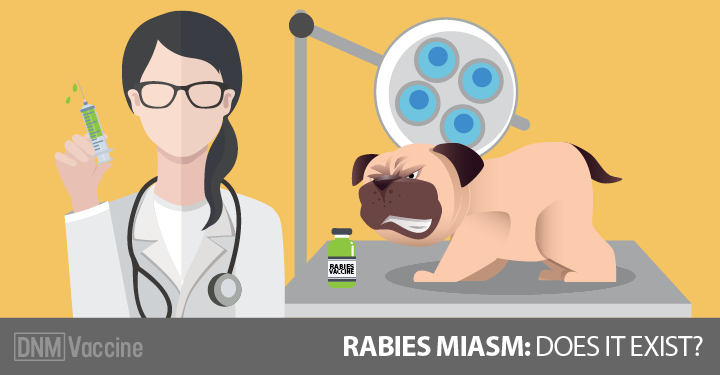If you don’t think one rabies vaccine can change your dog’s life forever, then you might want to read what I’m about to share …
Here’s a story that crossed our desk a while back about Mia Kraft, a 3 year old girl who had her face disfigured by her grandparents’ dog.
“I don’t really know what happened,” said Rick Taylor, the owner of the dog and Mia’s grandfather. “My dog just went for her.”
The reason for Mr Taylor’s confusion was that his dog Tebow, a 5 year old American Bulldog, had regularly been with Mia with no previous issues.
“She has been around it since she was born,” Taylor said. “He is really well-trained, he is very friendly. I just don’t understand.”
And Tebow’s vet isn’t helping him to understand …
Vets Refuse To Recognize Vaccine Damage
The interesting part of this story is the day before Tebow bit Mia, he was vaccinated for rabies, along with parvovirus and distemper.
The first problem with this is that a five year old dog shouldn’t need to be vaccinated for parvovirus and distemper … these vaccines have been shown to protect animals for a minimum of 7 years (and in the case of distemper, as long as 15 years). You can read more about the duration of immunity for those vaccines here.
[Is your dog being over-vaccinated? Grab this free download and compare your dog’s vaccine schedule to what current research considers safe and protective. Click Here]
But the bigger problem is that one rabies vaccine seems to have cost Mia a lot of pain …
… and ultimately cost Tebow his life.
The day before his attack on Mia, Tebow was vaccinated at Countryside Veterinary Small Animal Clinic. Countryside owner and veterinarian Bruce Hood said in his 20 years of experience he has never heard of vaccines leading to aggressive behavior in dogs.
“Usually if we have any kind of reaction, we will have an immediate reaction of breaking out in hives or some swelling in the face, or they will be lethargic for 12 to 24 hours,” Hood said. “But even that is rare.”
Hood said he doesn’t remember Tebow exhibiting any aggressive behavior on Friday, and he doesn’t know what might have been behind Saturday’s bite.
“If the dog was startled, it could have been a reflex reaction,” Hood said. “It is hard to say exactly what the scenario was.”
Wiseman said Tebow may have been a little more irritable than normal if he was sore from the vaccines and being touched in a sensitive area may have led to a reflex reaction.
A reflex reaction that happened just once … and just one day after his rabies vaccination.
Cynthia Wiseman, a veterinarian at Springfield Veterinary Clinic who was contacted by the News-Leader for comment about the attack, echoed Hood’s comments, saying she has never heard of vaccines leading to aggression in dogs.
Which is curious.
Because there are plenty of cases just like Tebow’s … if only vets would open their eyes to them.
Not An Isolated Case
Maggie was an eight month old healthy and happy female German Shepherd puppy who lived in Jacksonville, Florida, with Robert Davis and Ashley Shell and their three beautiful children.
Maggie’s life changed completely the day she received her first rabies vaccination.
Within hours of her vaccination, a golf ball sized mass developed at the sight of the injection. Almost immediately, Maggie became lethargic, refusing food and water over a few days, as well as developing red eyes, along with nasal discharge, as her body tried to rid itself of the harmful neurotoxins that were clearly affecting her.
Within three to four days of the jab, Maggie developed what appeared to be “rabies-like” symptoms, which included increasing aggression toward her loved ones, accompanied by a deranged stare and dilated pupils, a newly found affinity to chew wood, increasing desire to ingest her own feces and other indigestible items, fascination with reflections, severe restlessness at times with destruction of bedding and pillows, inability to follow directions, loss of impulse control, development of reverse sneezing as well as, of course, the worsening development of multiple grand mal seizures daily.
Ignored By Vets Again
In spite of multiple visits to various traditional veterinarians, no local veterinarians would admit that her rabies vaccination played any role in Maggie’s symptoms.
In fact, most of the vets became combative and defensive when this possibility was brought up.
One vet even went so far as to say that the golf ball sized lump had nothing to do with the rabies vaccination, but was more likely due to Maggie “bumping into something.”
But while many conventional veterinarians refuse to see the link between rabies vaccination and aggression, there are many holistic vets who clearly see the link.
Understanding that link between individual chronic diseases and the rabies vaccine involves what homeopathic physician Samuel Hahnemann called a miasm.
Rabies Miasm
The miasm is an underlying disease, like the part of the iceberg lurking beneath the water’s surface. You can see and deal with the tip of the iceberg — in this case, individual disease symptoms — but the iceberg’s essence (the miasm) is submerged, unreachable and deadly.
“Clinically,” says homeopathic veterinarian Dr Richard Pitcairn, “you see certain symptoms. A miasm is a chronic disturbance unrecognized except as it’s manifested by acute flareups of what seem to be individual diseases.”
“What I’ve seen happen is, after vaccination, dogs develop what we call the ‘rabies miasm’, where they become more aggressive, more likely to bite, more nervous and suspicious,” notes Dr Pitcairn. “They may also have a tendency to run away, to wander, and also sometimes to have excessive saliva, and to tear things up. It’s not that they have rabies, but they seem to express some symptoms of the disease from exposure to the vaccine.”
The symptoms of rabies miasm suggest that it’s much more common than you might suspect.
Rabies Miasm Symptoms
- Hypersensitivity of all senses
- Rage, agitation, violence, ferocity, sudden attacks, unprovoked attacks
- Irrational fears, timidity, suspicions
- Inappropriate responses to water – either extreme fear or great desire
- Obsessive/compulsive behaviors – tail chasing, fly biting, chasing balls
- Excessive focal licking
- Excessive sexual drives
- Sensitivity to close places or tight clothing/collars
- Sensitivity and over-reaction to noise
- Frequent or spasmodic sneezing
- Spasms in the jaws
- Choking, gagging, or coughing when swallowing liquids
- Reverse sneezing, laryngeal spasms
- Involuntary urination
- Constant or unwarranted erections, even in neutered males
- Excessive licking of genitalia
- Sensation of flea bites, violent itching with no obvious causation
- Convulsions especially from the sight of running water or of shiny objects
- Aimless wandering and vocalization
So homeopaths are able to clearly see how vaccines can cause aggression and a myriad of other physical symptoms. But what about scientific research?
How Vaccines Cause Aggression
Every vaccine has two components: the actual virus that it is meant to create an immune response to, such as parvovirus, and an immune adjuvant that enhances the immune response.
Vaccine adjuvants are typically made from a variety of highly toxic compounds including aluminum, MSG, and mercury. Adjuvants are added to boost the immune system, or to make it react as intensely as possible for as long as possible.
Dr Russell Blaylock MD warns: “Studies have shown that these adjuvants, from a single vaccine, can cause immune over-activation for as long as two years. This means that the brain microglia remain active as well, continuously pouring out destructive chemicals. In fact, one study found that a single injection of an immune activating substance could cause brain immune over-activation for over a year. This is very destructive.”
To better understand what happens in the brain, Dr Harold Buttram and Catherine Frompovich write:
“In explanation, microglia and astrocytes are first-line immunological responder cells located in the brain that defend against foreign infectious invaders. Normally this response, such as to a viral infection, is of limited duration and harmless to the brain. However, when microglia and astrocytes are over-stimulated for prolonged periods, which vaccine adjuvants are designed to bring about, this extended activation can be very destructive to the brain causing inflammation and/or bleeding.”
For the scientific research showing how vaccines can cause brain inflammation in dogs, click here.
How To Protect Your Dog From Rabies Vaccine Damage
Two days after his attack on Mia, Tebow’s owner signed his release, relinquishing ownership to Animal Control. It’s reported Tebow will be held there for a 10 day observation period, and then euthanized.
Tebow’s case is not isolated. Fortunately for Maggie, her family caught her symptoms and worked with a homeopathic vet to resolve them before she bit any of the kids. Maggie continues to improve … and hopefully there is a rabies exemption in her state or her troubles will start all over again with the next vaccine.
To avoid this tragic ending for your own dog, read this excellent article for ways to vaccinate more safely for rabies.
To read more about Tebow, click here.













